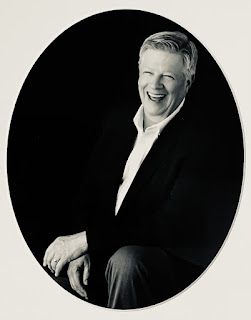The coolest song of the season has absolutely nothing to do with Christmas.
Do you know “White Winter Hymnal?” It’s a catchy little tune sung in a round. It’s been out in the world, so to speak, since Fleet Foxes released it in 2008. It’s the creation of Robin Pecknold, that band’s songwriter and vocalist. But, it really took off when Pentatonix added it to its 2014 album, That’s Christmas to Me. Now, it saturates the airways at Christmastime. It’s likely you’ve seen a YouTube video of it. Starting in autumn and peaking on Christmas Eve, it gets 96 million plays on Spotify alone.
There’s something weird, though: “White Winter Hymnal” isn't about Christmas, or even about winter per se. And that’s just one weird thing about the song—there’s also the lyrics:
“I was following the pack,
all swallowed in their coats
with scarves of red tied round their throats
to keep their little heads from falling in the snow,
and I turned round and there you go,
and Michael you would fall
and turn the white snow red as strawberries in summertime.”
What in the world does “turn the white snow red as strawberries” mean? And with lyrics like that, why is this song so popular at Christmastime? Before I share the answer with you, let me pose a different question to you: Why do we sing “The Twelve Days of Christmas?” I ask because the answer is the same for both songs. Yes, the latter song does reference Christmas, and it is also sung in a nontraditional way. But what does it actually have to do with Christmas? Here are those lyrics, in case your memory needs refreshing:
“On the twelfth day of Christmas
my true love sent to me:
12 Drummers Drumming
11 Pipers Piping
10 Lords a Leaping
9 Ladies Dancing
8 Maids a Milking
7 Swans a Swimming
6 Geese a Laying
5 Gold Rings
4 Calling Birds
3 French Hens
2 Turtle Doves
and a Partridge in a Pear Tree.”
Sure, those lyrics are not as strange as the ending lyrics to “White Winter Hymnal,” but what do they mean? Well, the Internet is full of what people think they mean. In fact, so full of potential meanings, I feel comfortable saying no one really knows.
And that brings us back to “White Winter Hymnal.” Lots of people have weighed in on what the lyrics mean. But none of them actually know. In fact, the song’s creator says it doesn’t really have a meaning, that it never had a meaning. He says he wrote it in about 20 minutes with the goal of having something that would be fun to sing in a round while doing dishes.
So why do we sing these two songs? We sing them because the singing of them brings us joy. And nothing could be more appropriate for the season. Speaking of the season, I am writing this on December 27th, the third day of Christmas. We celebrate the 12 days of Christmas not because Christmas is coming, but because Christmas has arrived. We sing and laugh, party and feast from December 25th through January 5th (Twelfth Night) because we are filled with joy.
And the songs we sing, just for the joy of it, are the perfect songs for the season. Whether they mean anything or not.
________________________
PHOTO (from an excellent video by VOGELCHAN made for the Fleet Foxes version of White Winter Hymnal):
https://www.youtube.com/watch?v=aGYd4-fxgNY
BONUS CONTENT
Watch the Pentatonix video of White Winter Hymnal:
https://www.youtube.com/watch?v=o10drRI3VQ0
More about Robin Pecknold and the creation of White Winter Hymnal:
An early video made to Fleet Foxes singing their song (and an interesting live-action take on the “red snow”):
https://www.youtube.com/watch?v=vPY32znj9U4
_________________________
Join us January 6, 2023 for DaySpring’s next Lectionary Breakfast. We will resume meeting in person at Our Breakfast Place and on Zoom, then.
Blessings,
Steve
See the reading links at:
https://lectionary.library.vanderbilt.edu/lections.php?year=A&season=Christmas
New Year's Day (January 1, 2023)
Ecclesiastes 3:1-13
Psalm 8
Revelation 21:1-6a
Matthew 25:31-46
First Sunday After Christmas (January 1, 2023)
Isaiah 63:7-9
Psalm 148
Hebrews 2:10-18
Matthew 2:13-23
Holy Name of Jesus (January 1, 2023)
Numbers 6:22-27
Psalm 8
Galatians 4:4-7 or Philippians 2:5-11
Luke 2:15-21




